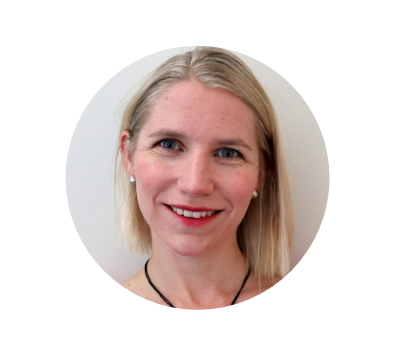'Being a first contact physiotherapist (FCP) was one of the most rewarding roles I have had as a physio,' writes CSP professional adviser Hannah Morley.
'I was able to use my knowledge and skills from all of my previous physio experience and learn so many new things along the way.

An average day as an FCP would see me discussing acute management of an ankle sprain utilising my sports injury experience followed by a discussion about an ongoing back pain problem utilising my independent non-medical prescribing training to have an informed discussion on the use or reduction of analgesia.
My diagnostic and assessment skills were critical as an FCP because I was the first step in this patient’s journey to understanding their problem but also the person they reached out to when they had questions or frustrations about their care.
Equally important are the skills I picked up from non-MSK experiences such as understanding how to adapt an exercise for someone with shoulder pain if they had multiple sclerosis or had had a stroke in the past or helping someone to set appropriate walking goals to improve their knee pain when they also had COPD or chronic fatigue syndrome.
Transferable skills like understanding how to adapt communication skills, using shared decision making with patients, using personalised care skills clinically and understanding the local population are also key to working in the primary care team.
In primary care there are many types of patient presentations which I tended to see more often than I would have in my previous roles in MSK outpatient departments or MSK-ortho triage services (iCATS).
For example, people with learning disabilities or physical disabilities tend to access care or advice at their GP surgery rather than at their self-referral physiotherapy department. This is also true for people struggling with a mental health problem or people with multiple co-morbidities and very elderly patients. So although an FCP needs MSK expertise they also need a large variety of experiences and breadth of knowledge in other specialities.
Communication skills are the most valuable skills for an FCP because patients are not just seeing you as a physio but they are seeing you as part of the primary care team. I needed to work closely with all my GP colleagues, nursing colleagues and other primary care team members such as pharmacists and social prescribers to help deliver the best care for patients.
As I was making my way through my physio journey from being a graduate towards advanced practice and FCP I was reliant on great mentors and clinical experts to help me identify the best opportunities and experiences to help me develop.
For you and other current burgeoning FCPs and advanced practitioners you will have access to the "roadmap" (the First Contact Practitioners and Advanced Practitioners in Primary Care: (Musculoskeletal) A Roadmap to Practice) which provides a process by which you can tailor your professional development from your early career steps up to advanced practice levels.
The roadmap can be used to develop a portfolio of practice and is currently being used in England but will also be a great resource in other areas of the UK, although the development of frameworks and formal pathways may look slightly different in Scotland, Wales and Ireland.
The roadmap sets out the development levels up to advanced clinical practice and provides clear guidance around the four pillars of practice which include clinical practice, education, leadership and research.
Advanced clinical practitioners will require a portfolio of evidence to demonstrate their work across these four pillars and it is a very good habit and practice to develop as you move through your career to link your experiences and evidence to these four pillars from the start.
If you can maintain the habit of reflecting your opportunities and experiences through the lens of the four pillars you will be able to direct your professional development and have some steady stepping stones as you move through your career.'
Number of subscribers: 1



































